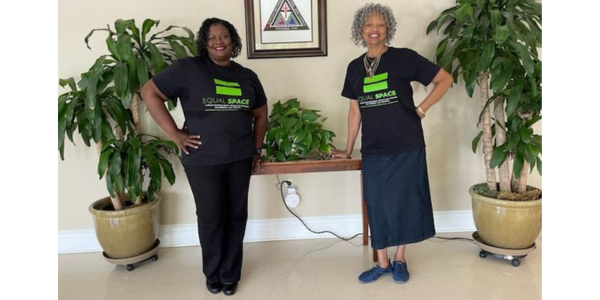
Throughout history, Black Americans have faced unequal treatment across societal institutions. From slavery to the Civil Rights Movement and beyond, the Church has been critical to advocating for social change and equality in the Black community, and the AME Zion Church has been and remains front and center.
As a trusted institution with broad reach and a history of leading efforts to prevent disease and promote health, the church is critical to addressing barriers to spiritual, emotional and physical well-being that disproportionately affect Black people due to systemic and structural racism. The AME Zion HEAL (Health Equity Advocates and Liaisons) partnership works to dismantle racism and reduce inequities in health and healthcare for Black communities in North Carolina by providing access to resources to improve health and increase participation in biomedical research. The partnership includes a network of 18 faith leaders representing 17 African Methodist Episcopal Zion churches across North Carolina.
Three years ago, Dr. Nadine J. Barrett and Dr. Kimberly S. Johnson joined forces with AME Zion HEAL to improve serious illness care. Based on previous research, Black people with serious illnesses are less likely to discuss their wishes for end-of-life care for family members or doctors; receive care consistent with their preferences; receive adequate management of pain and other symptoms; and access hospice and palliative care services.
“I thought, 'Is this a barrier related to preferring to leave these decisions in God’s hands?' " Johnson said during her Dean's Distinguished Research Series presentation in April 2023. “I then thought, 'Why can’t we bring this kind of education into the community?' Specifically, in churches where people could learn about these things before they actually needed them.”
To address these disparities, Duke investigators and research staff worked with AME Zion HEAL clergy and health ministry leaders to create Equal SPACE (Spiritual and Faith-Based Advance Care Planning and Palliative Care Education), a national model to increase awareness and access to information and resources related to serious illness and end-of-life care. The collaboration is funded by a grant from the Arthur Vining Davis Foundation.
Developed with input and expertise provided by congregants and faith leaders through focus groups and surveys, Equal SPACE addresses several barriers to high quality palliative and end-of-life care for Black patients, including access to trusted information in safe spaces, resources to complete advance directives, comfort discussing death and dying, opportunities to learn from the experiences of peers, and strategies to improve communication with healthcare providers.
“Black people don’t like to talk about dying," a focus group participant said. "We need to talk about hospice. A lot of people don’t know what hospice is, they think it’s just there for cancer patients. A lot of people don’t know what palliative care is. It needs to start in the church. I think [Equal SPACE] will bring the education that is needed.”
Among 610 congregants who completed surveys across 17 AME Zion Churches as part of the project, the majority of respondents had not discussed preferences for end-of-life care with their doctor, family, or friends, and many had little knowledge of advance care planning, hospice, and palliative care.
The Equal SPACE curriculum will launch in spring 2023.The curriculum includes four modules and covers advance care planning, hospice care, palliative care, and estate planning. Based on the results in North Carolina, the team looks forward to disseminating the program nationally in the future.
For more information about Equal SPACE, contact Alesha Majors at alesha.majors@duke.edu or Reverend Shellena Atlas at shellena.atlas@duke.edu.